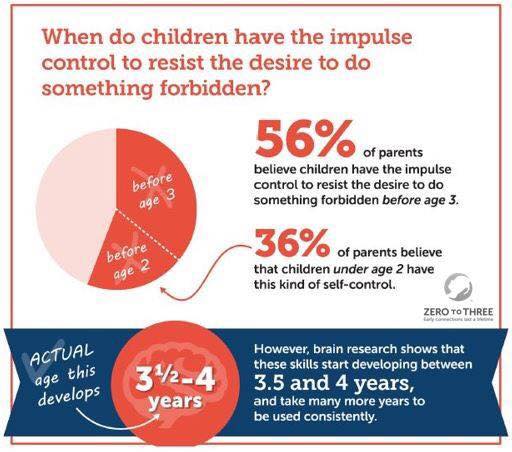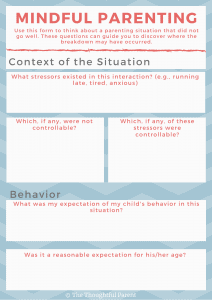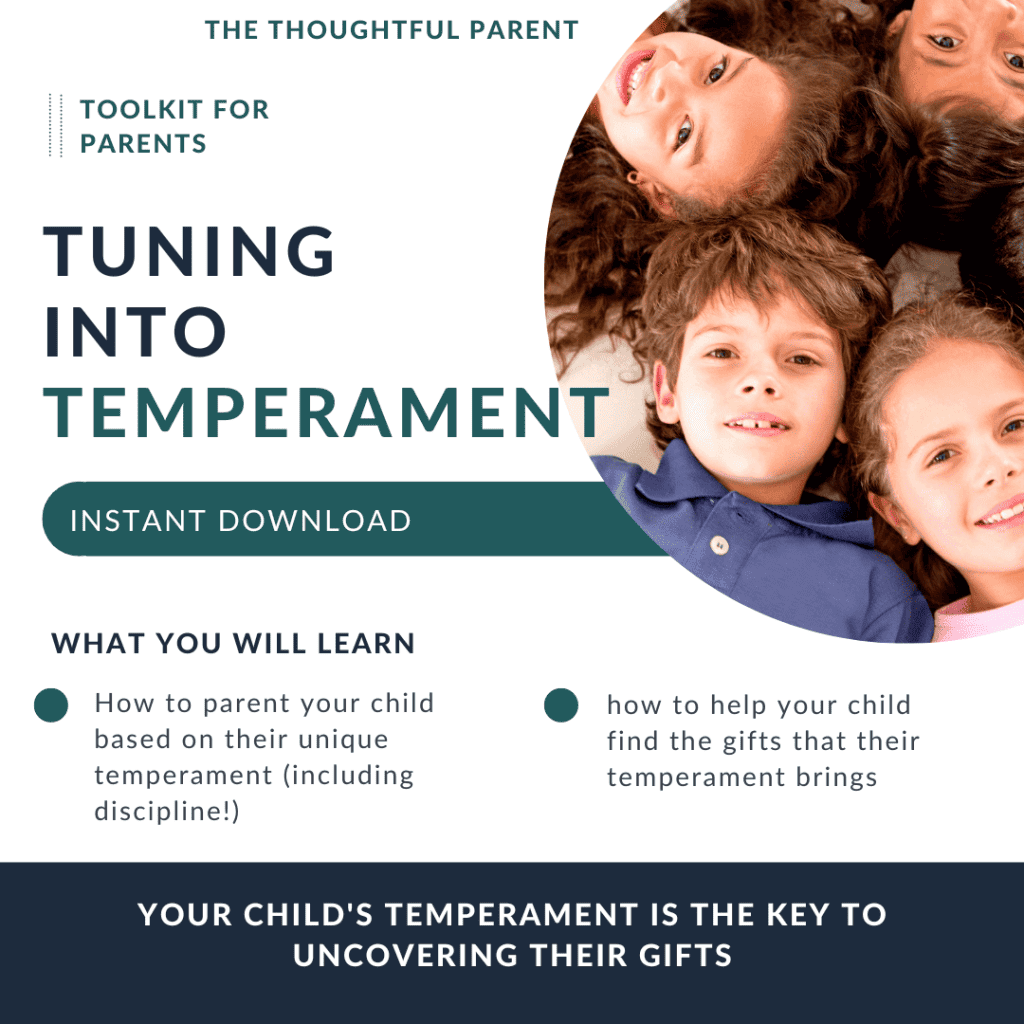Sneak peek: What’s the key for how to be a patient parent? Most of us have tried the tactic of “counting to ten” to calm down. However, the key ingredient is a more mindful approach.
If you look up books on how to be a patient parent or Google it, I would guess that at least 80% of them include a strategy, something along the lines of, “Go to another room and count to 10 to calm down.”
Has this ever worked for you?
When you are upset at your child, do you have the forethought to stop and count to 10?
I think for many of us, the answer is “no.” When we are upset enough to yell at our kids, with the stress hormones pumping through our veins, most of us do not have the self-control to just leave the situation and count to 10.
So what do we do instead?

How to be a Patient Parent (in real life)
After reflecting on my own impatient behavior with my kids and reading some research on the topic, I’ve come to a realization: learning to separate your child’s behavior from the context of the situation is half the battle in learning to become more patient.
Let me explain with an example:
Say you slept through your alarm one morning, and you are late getting your kids ready for school. You’re rushing around trying to get breakfast ready, teeth brushed, and your kids dressed for school. You’re worried they will be tardy or you’re also sort of embarrassed that you slept late on a school day.
As you’re rushing around, you hear your kindergartener wail and realize they’ve just spilled their milk all over the dining table. You rush over and yell at them because “They’re too old for this” or “They know better than to put his cup at the edge of the table.” This causes them to start crying, and the situation just goes downhill from there.

Let’s look at this situation with a little self-reflection: were you really mad about the spilled milk or was that just the “straw that broke the camel’s back” in the midst of an already stressful morning?
Most likely, it’s the latter. On another day, when you were not running late, spilled milk would (literally) be nothing to cry over.
Related reading: The Scientific Reason Why Yelling at Your Kids Doesn’t Work
This is an obvious example, but think back to the last time you yelled or were impatient with your children. Was it their behavior or the context of the situation that set you off? I think in many cases, other stressors are at play that contribute to us losing our patience with our children. Deep down, many of us know this.
How do you fix this issue so you can be a patient parent?
I think in many cases, how to be a more patient parent involves just reflecting on past situations, which can give us the answer. Do we need to plan more or allow more time to get ready for an event? Do we need to avoid a potentially stressful situation altogether (sometimes that’s not possible)? Are we stressed because we aren’t getting enough sleep, healthy food or exercise?
Related reading: Research Reveals the Real Reason Why You’re Losing Your Temper with Your Toddler
Here’s a video I made recently explaining more about this issue of context:
Related reading: Research-Backed Parenting Goals
Patient Parenting Requires a New Strategy
A New Approach to Patience
One of the hallmarks of positive parenting (which this blog focuses on) is looking at children’s behavior as communication. Children’s behavior usually has an underlying cause or motivating factor. For example, your child may appear disrespectful or angry, but underlying that may be an unmet need, feelings of anxiety, or that they simply haven’t developed the skills needed to handle the situation.
This is another area where mindfulness comes in handy. Think back to the last time your child’s behavior triggered your impatience or anger. What was the behavior? What may have been the underlying cause?
When I reflected on these issues, I discovered several common issues that I think many parents experience with their children’s behavior:
Expectations that aren’t developmentally appropriate
Expectations are often overlooked when we think about how to be a patient parent. Having reasonable expectations for children’s behavior is another key to patient parenting. This simply means we oftentimes expect our kids to act in ways for which they are not developmentally ready. For example, expecting a 2-year-old to sit quietly and calmly while you wait in a waiting room for an appointment is not really reasonable. If we go into a situation with an unrealistic expectation of our child, then we will most likely be disappointed and possibly lose our patience.
This graphic is just one example of how understanding developmentally appropriate expectations can have a huge impact on our parenting:

That’s one of the main reasons I started this blog—by having age-appropriate expectations of our kids, we are less likely to be impatient and disappointed in their behavior.
You may also enjoy: Social-Emotional Development: The Ultimate Guide for Parents
Certain attitudes (or perceived attitudes) of your child
Are there certain attitudes, like disrespect or ungratefulness, that trigger you more than others? For me, it’s ungratefulness. If I feel my kids are being ungrateful for something (or experience) that they’ve been given, it will trigger impatience in me more than almost anything else.
What is that trigger for you? Just a hint: many times what appears as the “trigger attitude” to us is many times not what the child is actually expressing. In other words, it’s our trigger because we are hypersensitive to it. Again, what looks like disrespect or ungratefulness to us may just be fatigue, grumpiness or some other issue that the child is experiencing (see the video above for more details).
Temperamental factors
Sometimes our child’s temperamental needs can set us off for being less than patient because their needs are so different from ours. If you are more introverted and your child is more extroverted, his need for a lot of social engagement might make you lose your patience because you do not have that need. I explain a good example of this in the video above. Temperamental differences (or similarities in some cases) are often a trigger point between kids and parents.
But Wait…
I know what you’re thinking…sometimes my child is disrespectful or ungrateful or misbehaves in some other way. I hear you, parents! I’m not saying that kids never misbehave and that there is always some underlying explainable reason. Kids are kids; their brains are still developing and they make mistakes.
However, if you can use this mindful parenting approach to help understand the other factors or underlying issues that are at play in many cases, then that only leaves you with the times when kids do make mistakes.
When kids do make a mistake or make a bad choice, you will have built up such a strong connection and understanding of their behavior that you can respond more patiently and work through the issue in a way that they can learn from it.
Want help learning how to be a patient parent? Sign up as a paid subscriber to my Substack newsletter and receive access to this Mindful Parenting Worksheet and ALL printables resources I’ve created for parents.

Sign up here!




Leave a Reply